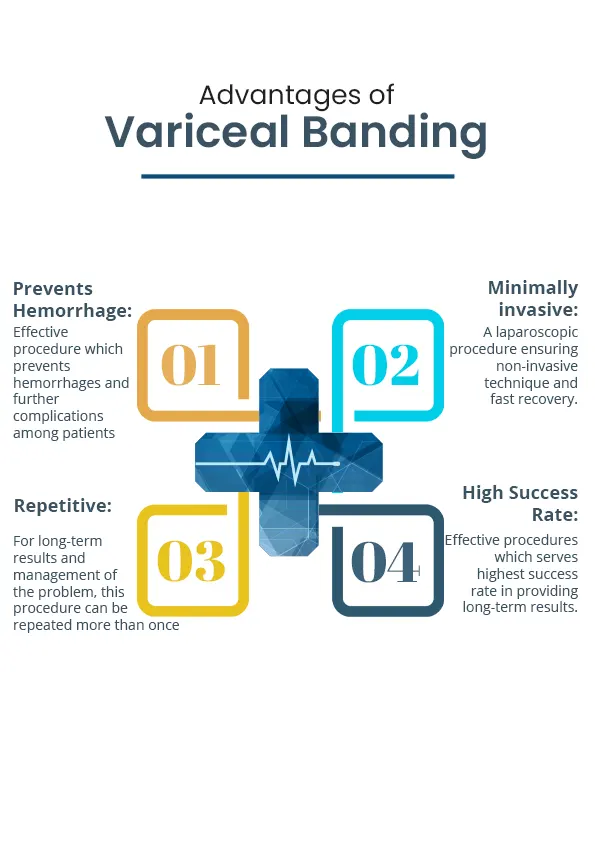Endoscopic Intervention
What Is Variceal Banding?
Variceal banding is performed to treat esophageal varices, which are abnormally dilated blood vessels in the esophagus. This procedure is typically indicated for patients with liver cirrhosis or portal hypertension, as these conditions can lead to increased pressure in the veins supplying the liver, resulting in the development of varices.
Why Is Variceal Banding Performed?
- Treatment of Esophageal Varices: Variceal banding is performed to treat esophageal varices, which are enlarged and swollen blood vessels in the esophagus.
- Prevention of Variceal Bleeding: By constricting the varices with rubber bands, variceal banding helps reduce the risk of variceal bleeding, a serious complication associated with liver cirrhosis and portal hypertension.
- Management of Liver-related Conditions: Variceal banding is commonly used in patients with liver cirrhosis or portal hypertension, conditions that predispose individuals to the development of esophageal varices.
Advantages of Variceal Banding
- Effective Hemorrhage Prevention: Variceal banding is highly effective in reducing the risk of variceal bleeding which may be associated with liver cirrhosis and portal hypertension.
- Minimally Invasive: As a non-surgical procedure, variceal banding is minimally invasive and can typically be performed on an outpatient basis, leading to shorter hospital stays and faster recovery times.
- Can be Repeated: Variceal banding can be repeated as needed to achieve optimal results, providing long-term management of esophageal varices and reducing the risk of recurrent bleeding episodes.


